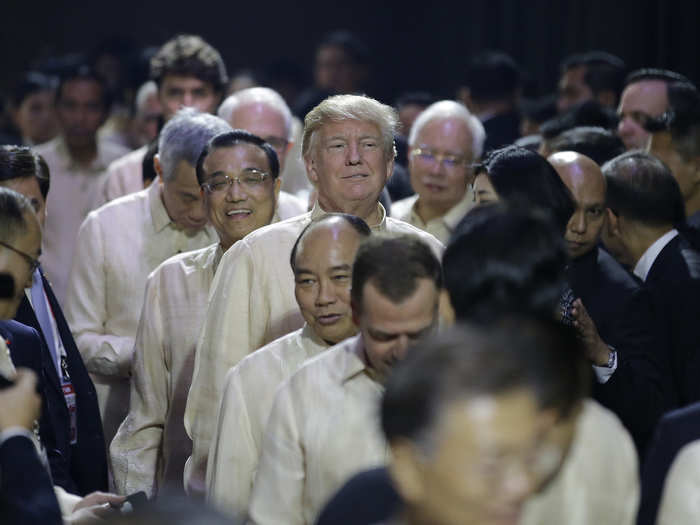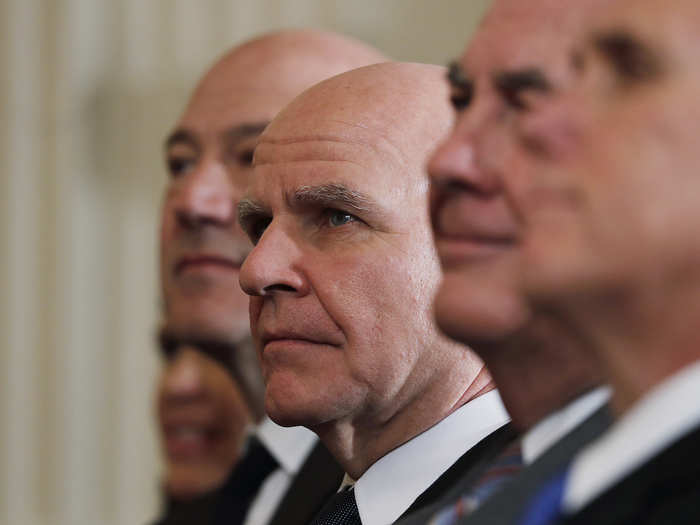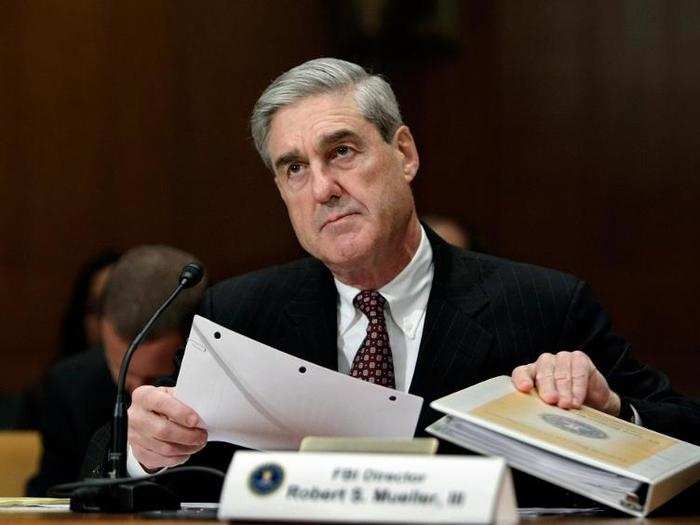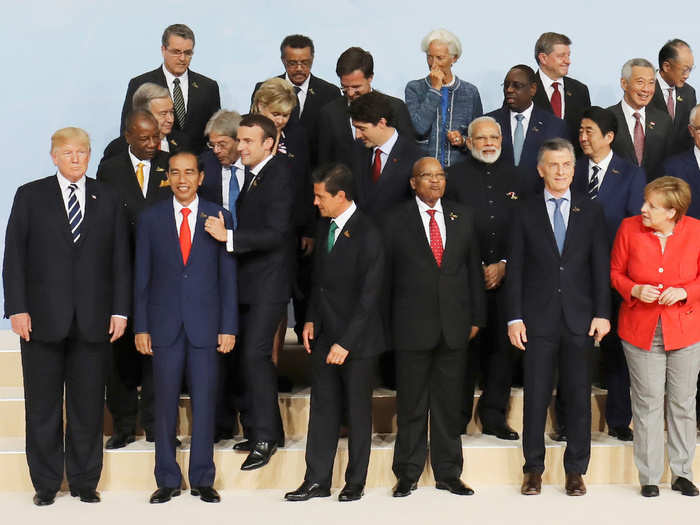- Home
- slideshows
- miscellaneous
- Ian Bremmer reveals why last week was 'the most significant and dangerous week of geopolitics' in 20 years
Ian Bremmer reveals why last week was 'the most significant and dangerous week of geopolitics' in 20 years
A tipping point in relations between the US and China.

Ian Bremmer reveals why last week was 'the most significant and dangerous week of geopolitics' in 20 years

Uncertainty persists among US partners and others in Asia — both about their status with the US and their approaches to dealing with China.
"America's put all of its allies on notice in terms of these tariffs," Bremmer told Business Insider. That has led to lobbying for exceptions by US trade partners, who face the same problems the US does with China, like market access, lack of rule of law, or data localization, Bremmer said.
But China is growing bigger, and the US has undercut itself by failing to follow through on policy issues as well as a diminished interest in spreading money around to foreign partners, Bremmer said. "The willingness of these countries to actually coordinate with the Americans on China policy is virtually zero at this point."
Trump himself has complicated things.
"Trump ... saying whatever is on his mind without being advised by experts around him and using that tactically to try to improve his negotiating deal does tend to undermine long-term relationships," Bremmer said. "That has just as much affect on American partners in Asia as it does on anywhere else."
Personnel changes at the White House indicate Trump may soon act with fewer restraints.

"Tillerson, Cohn and McMaster shared two significant traits: They mostly supported the maintenance of the status-quo foreign policy orientation, and they had no compunction in telling the president directly when they disagreed with him on a substantive issue," Bremmer wrote on Monday morning.
The men who will take over those jobs, Mike Pompeo, Larry Kudlow, and John Bolton, "share an important characteristic," Bremmer added in the email. "All three are more likely than their predecessors to support the political instincts of Trump and focus on how to implement what he wants done."
Ian Bremmer reveals why last week was 'the most significant and dangerous week of geopolitics' in 20 years

Trump's outgoing advisers did restrain him on some policies, and other actors are still in a position do that.
"You look at the Muslim ban, and he was constrained by the judiciary. And you look at his trade arguments, and he's constrained by some of his own people in the White House, but also by Congress and by governors of red states and by CEOs and bankers," Bremmer told Business Insider.
"There's a whole bunch of things that Trump comes up [with] ... for his base, and ... he doesn't know what the policy constraints [are] and doesn't know how to pay for things," Bremmer said. "You have to implement. You have to execute, and that's more problematic for him."
However, the most immediate brakes on Trump's impulses may be gone.
"I think that the constraints around him, inside his White House and in his Cabinet, have been reduced recently, because he's gotten rid of several of the adults, who may not have all been very effective in terms of working the White House, working Trump, but they were willing to tell him when they disagreed and why they disagreed and do so loudly," Bremmer said.
Pressure on Trump himself is growing.

The Mueller investigation is becoming "more expansive than President Trump had anticipated," Bremmer wrote. "And it's only gathering steam."
What happens next — with Mueller or with the investigation itself — remains to be seen. Going forward, that uncertainty lends itself to a more unpredictable president.
Ian Bremmer reveals why last week was 'the most significant and dangerous week of geopolitics' in 20 years

"Whether or not he should have believed the investigation was going to be over by the end of the year is a different story, but certainly he did believe that. He did believe it wasn't going to get to him personally, wasn't going to get up to his family," Bremmer told Business Insider.
"And now it's fairly obvious that's all wrong, and on the one hand it means he's changing up his legal team, which is fine, but more relevantly, it means that's he's acting in a much more volatile way, in a much more emotionally brittle way, and that does have policy implications ... especially in the area of international affairs, where he has a lot fewer restraints on what he can do," Bremmer said. "I think that the risk environment has increased significantly."
'A post-Pax Americana, G-Zero world.'

There are also bigger, overarching themes in international affairs — not all of which are related to Trump — that complicate an already fraught environment.
"It's a post-Pax Americana, G-Zero world, where American allies are weaker, less coordinated, and more predisposed towards hedging — so any potential for geopolitical conflict has further reaching implications," Bremmer wrote on Monday morning, noting that the US itself is growing more revisionist and more disposed to challenge economic and security arrangements "for purposes of national interest and domestic political gain."
The stories above intertwine to help further disrupt a global order that is already fraying.
Ian Bremmer reveals why last week was 'the most significant and dangerous week of geopolitics' in 20 years

The Trump administration has "accelerated" that fraying, Bremmer told Business Insider, but he stressed that its actions were not the principal cause.
"This has been coming for a long time," he said. "The fact is that the average American does not believe that free trade and open borders and American wars in Afghanistan or in Iraq have benefitted them, and that's a much bigger piece of why Trump was elected, and so I think we have to look at some of these root causes."
"It's not just happening in the United States," Bremmer added. "It's happening across most of the liberal democratic world."
Advertisement